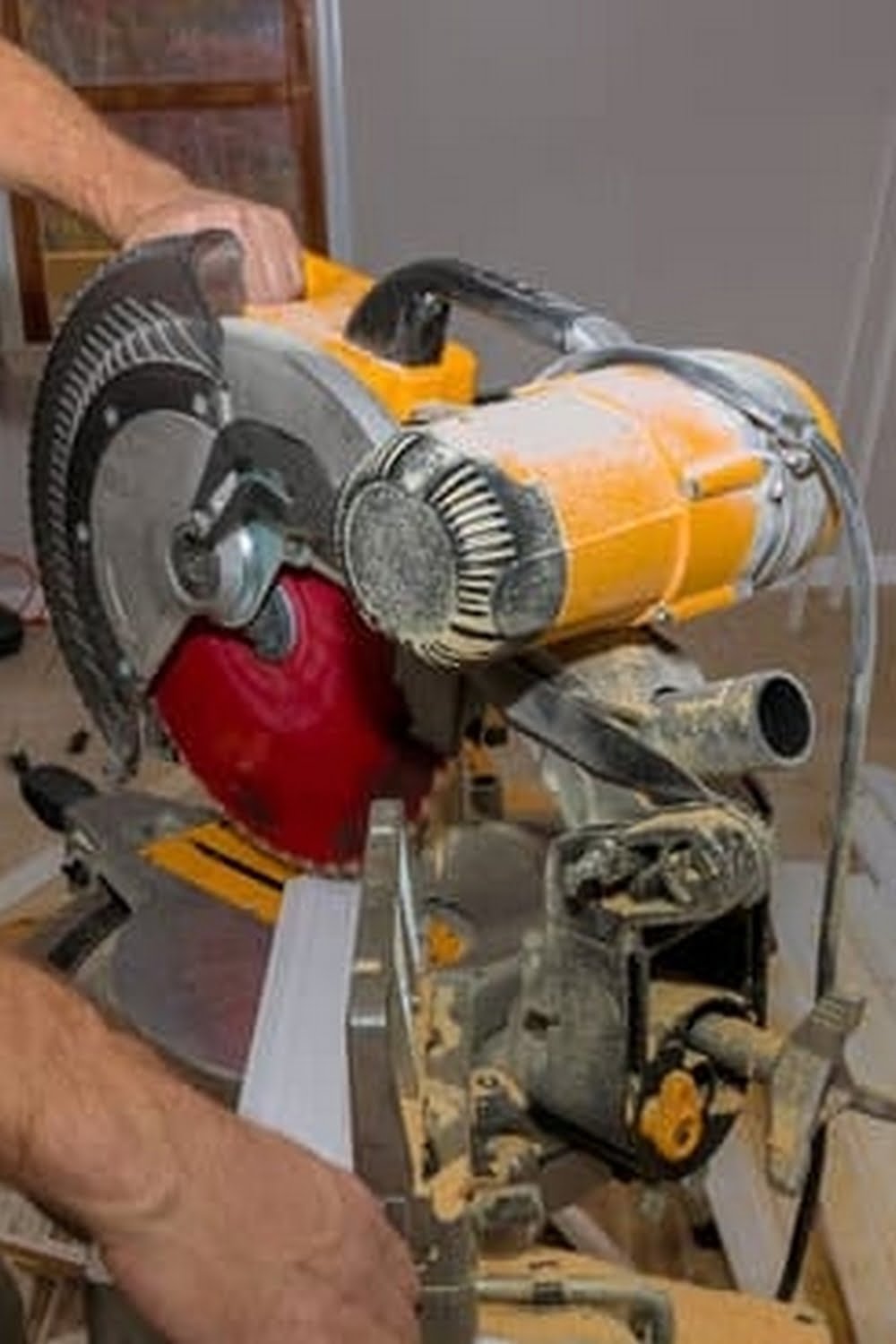Are you interested in woodworking but find the cost of tools to be a barrier? In this article, we will explore the world of DIY woodworking by learning how to make your own easy woodworking tools. Whether you are a beginner or an experienced woodworker, creating your own tools can have numerous benefits and can open up a world of possibilities for your projects.
Woodworking is a craft that requires specific tools to achieve desired results. Understanding the importance of these tools and having the ability to make them yourself can not only save money but also provide a sense of accomplishment and customization. From basic saws and chisels to more complex hand planes and jigs, making your own woodworking tools can enhance your skills and give you greater control over your craft.
In this section, we will delve into why easy woodworking tools are essential for any woodworker, whether amateur or professional. We will discuss the role that these tools play in shaping and finishing wood, as well as their impact on the overall quality of a woodworking project.
Additionally, we will highlight the advantages of making your own tools, including cost savings, customization options, and the satisfaction of using something you’ve crafted with your own hands. So let’s get started and explore the world of DIY woodworking tool making.
Essential Tools
Woodworking is a fulfilling and creative hobby that many people enjoy. However, in order to practice this craft, it is crucial to have the right tools at your disposal. Here are some essential tools required for woodworking:
Measuring and Marking Tools
Accurate measuring and marking are crucial aspects of woodworking. Some essential tools include a measuring tape, carpenter’s square, marking gauge, and pencil. These tools are used to measure and mark wood accurately before cutting or shaping it.
Cutting Tools
The most essential cutting tool for woodworking is a saw. There are different types of saws available, such as a handsaw, jigsaw, circular saw, or table saw. Each type of saw has its own specific purpose in woodworking, and it’s important to choose the right one for your project.
Shaping and Finishing Tools
Chisels, planes, and sandpapers are essential for shaping and finishing wood. Chisels are used for carving out precise shapes and angles in wood. Planes help in smoothing out rough surfaces on the wood while sandpapers are used for giving the final finish to the wooden piece.
These are just a few examples of the basic tools required for woodworking. Depending on the complexity of your projects, you may need additional tools but these essentials will get you started on most simple woodworking projects.
In this section, we will explore how to make your own easy woodworking tools which can often save money while also providing customization options tailored to your specific needs.
DIY Woodworking
Woodworking is a craft that requires a variety of tools to create beautiful and functional pieces. While it’s easy to purchase ready-made woodworking tools from stores, there are numerous benefits to making your own tools. DIY woodworking tools not only save money but also allow the craftsman to customize their tools according to their specific needs and preferences.
Cost-Effective Solution
One of the main benefits of making your own woodworking tools is cost-effectiveness. Purchasing high-quality woodworking tools from stores can be expensive, especially for individuals who are just starting out in the craft. Making your own tools allows you to save money on buying expensive equipment while still being able to create reliable and functional tools for your projects.
Customization and Creativity
When you make your own woodworking tools, you have the freedom to customize them according to your specific needs and working style. You can modify the size, shape, and features of the tool to meet the requirements of a particular project or simply make it more comfortable for you to use. Additionally, crafting your own tools allows for creativity and innovation, as you can experiment with different materials and designs that may not be available in commercial options.
Personal Pride and Satisfaction
Crafting your own woodworking tools can be a source of personal pride and satisfaction. Knowing that you have created a functional tool with your hands adds value and meaning to your work. The process of making your own tools can also be a learning experience, as it allows you to understand the mechanics behind how certain woodworking tools work, providing a deeper knowledge of the craft overall.
Choosing the Right Materials
When it comes to making your own easy woodworking tools, choosing the right materials is crucial. The quality and durability of your tools depend on the materials you use, so it’s essential to understand which materials are best suited for crafting woodworking tools.
One of the most common materials used for DIY woodworking tools is hardwood. Hardwoods like oak, maple, and cherry are known for their strength and resilience, making them ideal for creating durable tools such as hammers, mallets, and chisels. These woods are also readily available at most hardware stores and lumber yards, making them easily accessible for crafters.
Another important material to consider when making woodworking tools is metal. Steel is often used for creating blades on saws and chisels due to its sharpness and ability to hold an edge. It’s important to choose high-quality steel for these applications to ensure the effectiveness and longevity of your homemade tools.
In addition to hardwood and metal, other materials such as screws, nails, adhesives, and finishes are also vital components in crafting easy woodworking tools. Using the right type of fasteners and adhesives will ensure that your tools are securely assembled, while applying a suitable finish will protect the wood from wear and tear.
Overall, understanding the best materials for crafting easy woodworking tools is essential for ensuring the quality, durability, and functionality of your DIY creations. By selecting high-quality hardwoods, metals, fasteners, adhesives, and finishes, you can make homemade woodworking tools that rival store-bought options in performance and longevity.
| Materials | Applications |
|---|---|
| Hardwood (oak, maple, cherry) | Hammers, mallets |
| Steel | Saws & Chisels |
Step-by-Step Guide
Making your own easy woodworking tools can be a rewarding and cost-effective way to enhance your woodworking experience. Whether you are a beginner or an experienced woodworker, creating your own tools allows you to customize them according to your specific needs and preferences. In this detailed tutorial, we will guide you through the process of making your own easy woodworking tools.
The first step in making your own woodworking tools is identifying the specific tools that you want to create. This could include items such as chisels, mallets, marking gauges, or even custom jigs and fixtures. Once you have decided on the type of tool you want to make, it’s important to gather the necessary materials and equipment.
When it comes to crafting your own woodworking tools, choosing the right materials is crucial for ensuring durability and performance. For example, when making a chisel, high-quality tool steel is essential for creating a sharp and reliable cutting edge. Additionally, considering factors such as handle material for comfort and grip becomes important in the selection process.
After gathering all the necessary materials, it’s time to dive into the actual construction process. Whether it’s shaping steel for a chisel blade or turning a wooden handle on a lathe, following detailed instructions and using proper safety measures is key when creating your homemade woodworking tools.
| Woodworking Tools | Materials Needed |
|---|---|
| Chisels | High-quality tool steel |
| Mallets | Durable hardwood or softwood |
| Marking Gauges | Stainless steel or brass rods |
Safety Measures
When it comes to crafting your own easy woodworking tools, safety should always be a top priority. Proper safety precautions are essential to prevent accidents and injuries while working with tools. Here are some important safety measures to keep in mind when making and using DIY woodworking tools:
Protective Gear
Wearing the appropriate protective gear is crucial when working with woodworking tools. This includes wearing safety glasses to protect your eyes from flying debris, hearing protection to guard against loud noises, and gloves to protect your hands from cuts and splinters.
Proper Tool Usage
It’s important to use each tool correctly and according to its intended purpose. This not only ensures the best results in your woodworking projects but also reduces the risk of accidents. Make sure to familiarize yourself with each tool’s operation manual before using it.
Workspace Safety
Maintaining a clean and organized workspace is essential for safe woodworking. Keep your work area free of clutter, ensure good lighting, and secure your materials properly. Additionally, make sure that power cords are out of the way and that there are no tripping hazards in your work area.
By following these safety measures, you can enjoy creating your own easy woodworking tools with peace of mind, knowing that you’re taking the necessary precautions to protect yourself from potential accidents or injuries.
Maintenance Tips
As a woodworking enthusiast, making your own easy woodworking tools can be a fulfilling and cost-effective endeavor. Once you have crafted your own set of tools, it is important to know how to properly maintain and care for them in order to maximize their lifespan and ensure safe usage. Proper maintenance also ensures that your homemade woodworking tools continue to perform effectively for all your woodworking projects.
First and foremost, regular cleaning is essential in maintaining the quality of your homemade woodworking tools. After every use, make sure to thoroughly clean off any sawdust, dirt, or residue that may have accumulated on the tools. Use a soft cloth or brush to remove any debris, and consider using an appropriate lubricant to keep metal parts free from rust.
In addition to regular cleaning, it is crucial to inspect your homemade woodworking tools for any signs of wear or damage. Check for loose handles, dull blades, or any other issues that may affect the functionality of the tools. Addressing these issues promptly can prevent accidents and ensure that your tools remain in good working condition.
Proper storage is also key in maintaining homemade woodworking tools. Store them in a dry environment to prevent rusting, and consider investing in tool racks or organizers to keep them organized and easily accessible. By following these maintenance tips, you can prolong the life of your homemade woodworking tools and continue enjoying the fruits of your DIY labor for years to come.
Advanced Techniques
For experienced craftspeople, the satisfaction of creating one’s own woodworking tools can be incredibly rewarding. Not only does it allow for a greater level of customization and control over the tools’ design and functionality, but it also showcases a high level of skill and craftsmanship. Here are some advanced techniques for making your own easy woodworking tools:
1. Custom Blades: One of the most advanced DIY woodworking tool making techniques is crafting custom blades for saws, chisels, or planes. This involves shaping and sharpening high-quality steel to create a blade that suits your specific woodworking needs. Investing in a good quality steel blank and learning the art of tempering and sharpening can result in long-lasting, reliable cutting edges.
2. Handcrafted Handles: Crafting your own tool handles from scratch is another advanced technique that seasoned woodworkers may find fulfilling. With the right wood species, carving and shaping techniques, as well as finishes such as linseed oil or varnish, you can create ergonomic and visually appealing handles for your chisels, mallets, or screwdrivers.
3. Repurposing Old Tools: Experienced craftspeople often enjoy the challenge of repurposing old or broken tools into new creations. This can involve salvaging vintage hand plane bodies and rebuilding them with custom-made blades and adjustments mechanisms, or turning old drill bits into custom carving tools. It’s a sustainable approach to toolmaking that also hones one’s problem-solving skills.
By mastering these advanced DIY woodworking tool making techniques, experienced craftspeople can take their woodworking abilities to new heights while enjoying the unique benefits of using self-made tools in their craft projects.
Conclusion
In conclusion, understanding the importance of easy woodworking tools is essential for anyone interested in pursuing woodworking as a hobby or profession. Identifying the basic tools required for woodworking and exploring the benefits of making your own tools not only saves money but also allows for customization and a greater sense of pride in one’s work. Choosing the right materials for crafting easy woodworking tools is crucial in ensuring their durability and functionality.
The step-by-step guide provided in this article offers a detailed tutorial on how to make your own easy woodworking tools, empowering readers to take on DIY projects with confidence. Additionally, it is important to ensure safety precautions when crafting and using DIY woodworking tools to prevent accidents and injuries. By properly maintaining and caring for homemade woodworking tools, craftspersons can extend their lifespan and maintain optimal performance.
Furthermore, this article has highlighted advanced techniques for experienced craftspeople who may want to explore more complex DIY woodworking tool making techniques. In light of these benefits, we encourage readers to give it a try and discover the satisfaction of creating their own easy woodworking tools.
Whether as a beginner or seasoned woodworker, the process of making your own tools can be both rewarding and fulfilling. So embrace the opportunity to unleash your creativity and craftsmanship by learning how to make your own easy woodworking tools.
Frequently Asked Questions
How to Get Free Woodworking Tools?
There are a few ways to get free woodworking tools. One option is to check online platforms like Freecycle or Craigslist for people giving away unwanted tools. Another option is to attend local woodworking classes or workshops where sometimes free tools are provided.
What Is the Most Essential Woodworking Tools?
The most essential woodworking tools include a circular saw, a jigsaw, a power drill, a sander, and a set of chisels. These tools are versatile and can be used for various woodworking projects, making them essential for any woodworker.
What Tool Can You Use When Work Alone and Need to Hold Wood Together?
When working alone and needing to hold wood together, one useful tool is the pocket hole jig. This tool allows you to create strong joints by drilling angled holes and using screws to hold the wood pieces together, making it easier to work solo on woodworking projects.

Hi everyone! I’m a woodworker and blogger, and this is my woodworking blog. In my blog, I share tips and tricks for woodworkers of all skill levels, as well as project ideas that you can try yourself.





